
The study revolves around a specific DNA repair complex formed by the proteins PMS2 and MLH1, also known as Mutl_Alpha, which is crucial for correcting DNA errors.

The Kelly Butler ALS Center is a multidisciplinary clinic providing treatment for amyotrophic lateral sclerosis, also known as ALS or Lou Gehrig’s disease. During your visit, you can expect to meet with professionals from a variety of disciplines, including a nurse, neurologist, physical therapist, occupational therapist, speech-language pathologist, respiratory therapist, social worker, and dietitian. You will meet with each of them during your time in the clinic.
Our physicians are also educators in the Department of Neurology at the Frederick P. Whiddon College of Medicine at the University of South Alabama. Visit the Department of Neurology to learn about its academic mission, residency and fellowship programs.
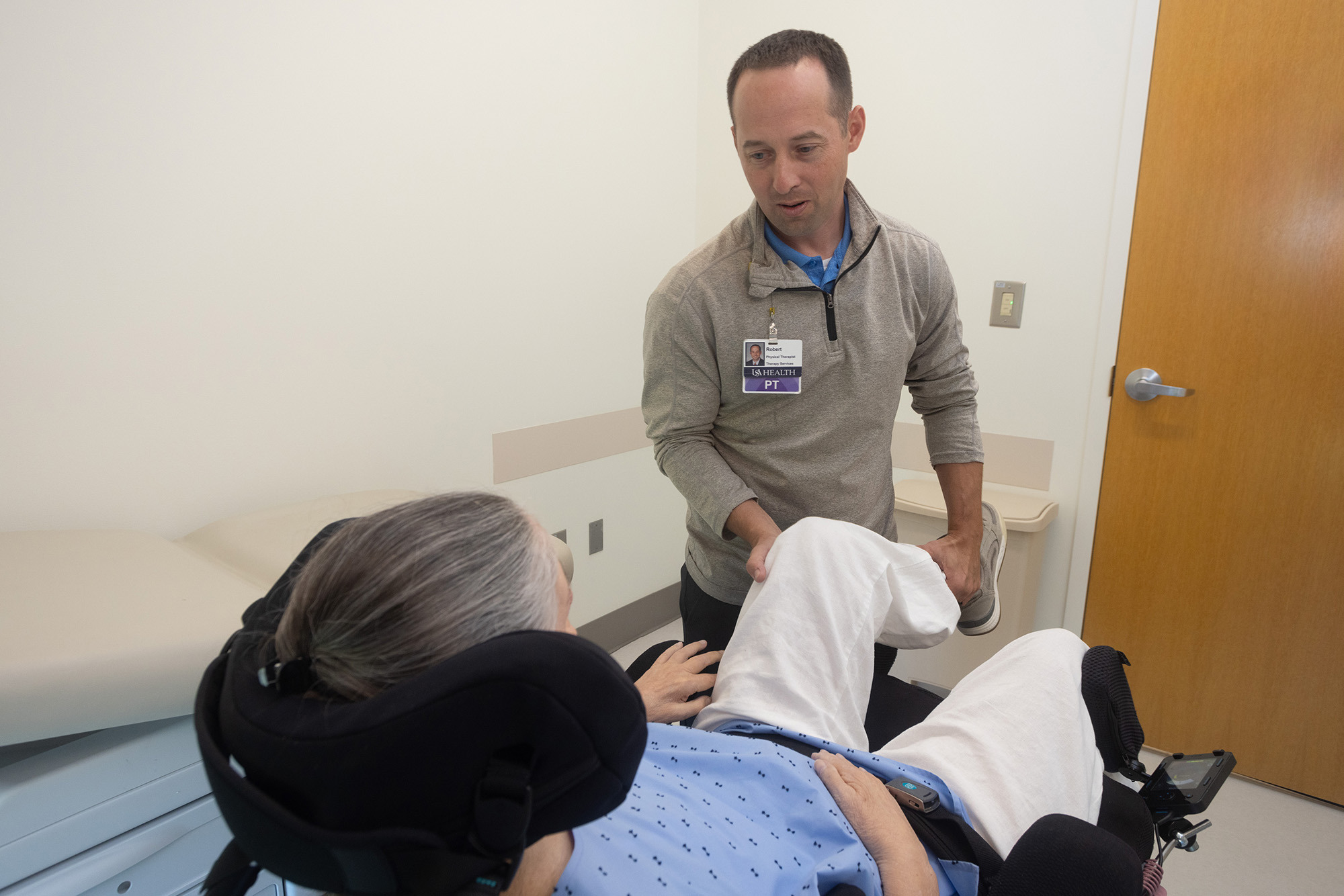
You will check in to your appointment on the second floor of the Strada Patient Care Center at the front desk for the Department of Neurology. When it is time for your appointment, the nurse will call you into the clinic from the waiting room. Then, you will meet each of the professionals listed above, one at a time, to evaluate and discuss your current needs and care plan.
Your appointment will last approximately four hours. The nurse will get your vital signs and walk you through the ALS-FRS form. The neurologist will check your neurological function and monitor your disease progression. The physical therapist and occupational therapist will look at your balance, strength, and range of motion, and they will review your activities of daily living. The speech-language pathologist will assess your communication and swallowing. The respiratory therapist will evaluate your breathing and pulmonary function. The social worker will help to connect you with community resources, discuss financial matters, and provide psychosocial support. The dietitian will evaluate your weight and nutritional needs.
This is a long appointment, and it can be easy to forget questions you wanted to ask and concerns you wanted to address. It can be helpful to write these down ahead of time, as you think of them, so you can refer to them during the appointment.
We know that this time will be stressful and quickly can become overwhelming. There is no right or wrong way to be feeling right now. You may feel angry, sad, scared, confused, or have no idea how you feel at all.
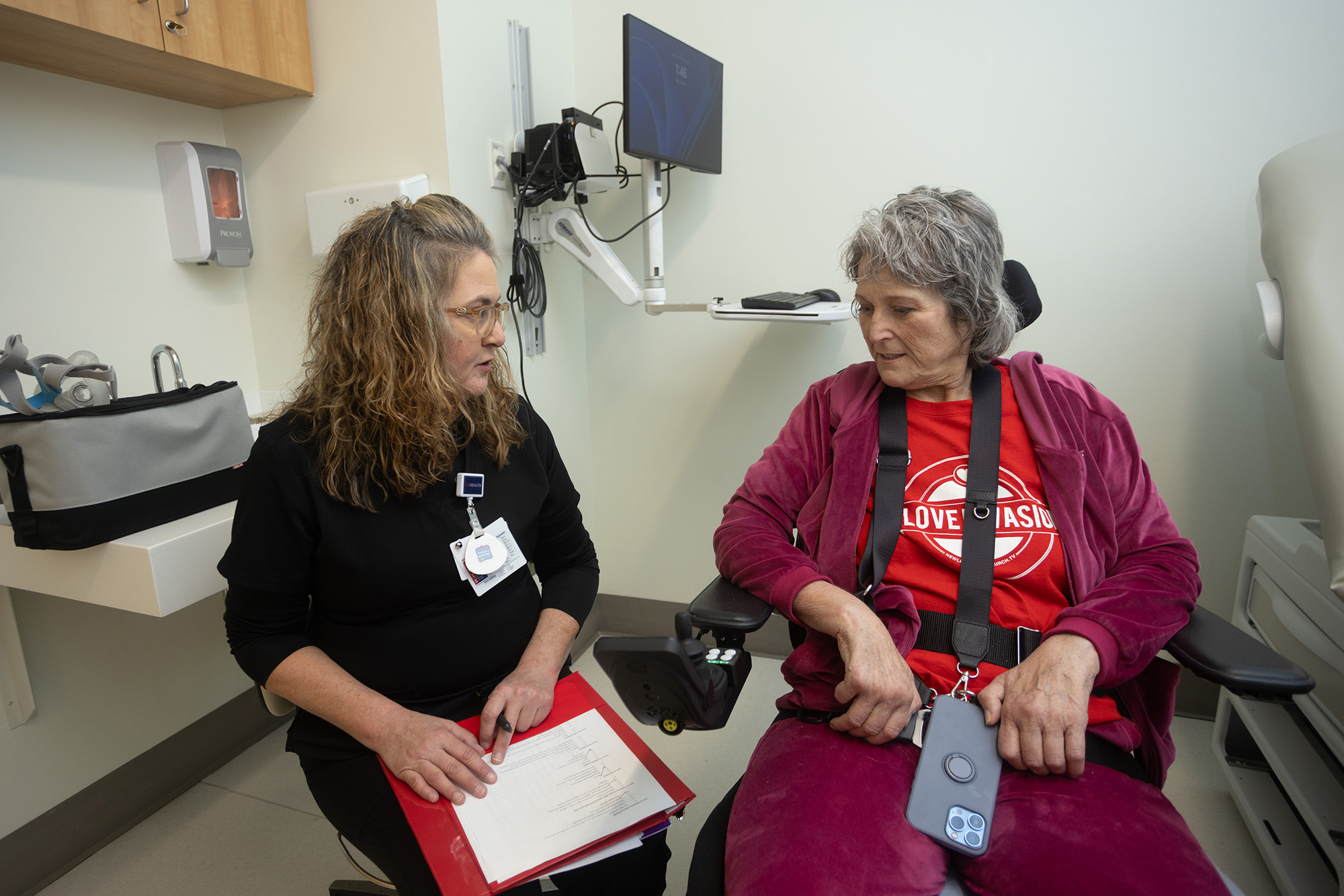
Learn about the healthcare providers who will meet with you during your appointment.
Neurologist: Medical doctor who specializes in diseases of the muscles and nerves and who is committed to treating ALS.
Nurse: Navigates the coordination of the multidisciplinary team and the patient’s needs.
Respiratory Therapist (RT): Assesses breathing and pulmonary function.
Physical Therapist (PT) and Occupational Therapist (OT): Work together to evaluate your balance, strength, range of motion, and activities of living (how you take care of yourself). OT focuses on hands and upper body, while PT focuses on torso and legs.
Speech-Language Pathologist (SLP): Will assess your communication and swallowing.
Social Worker (SW): Helps connect you with community and financial resources, as well as psychosocial support, and serves as an advocate for you. Can help you with advanced care and end-of-life planning.
Mental Health Professional: Assesses psychosocial needs and potential cognitive deficiencies.
ALS Association Liaison: Will help identify and link you with resources available through the ALS Association.
Dietitian (RD): Monitors your nutritional needs and provides recommendations on supplementation, tube feeding, etc.
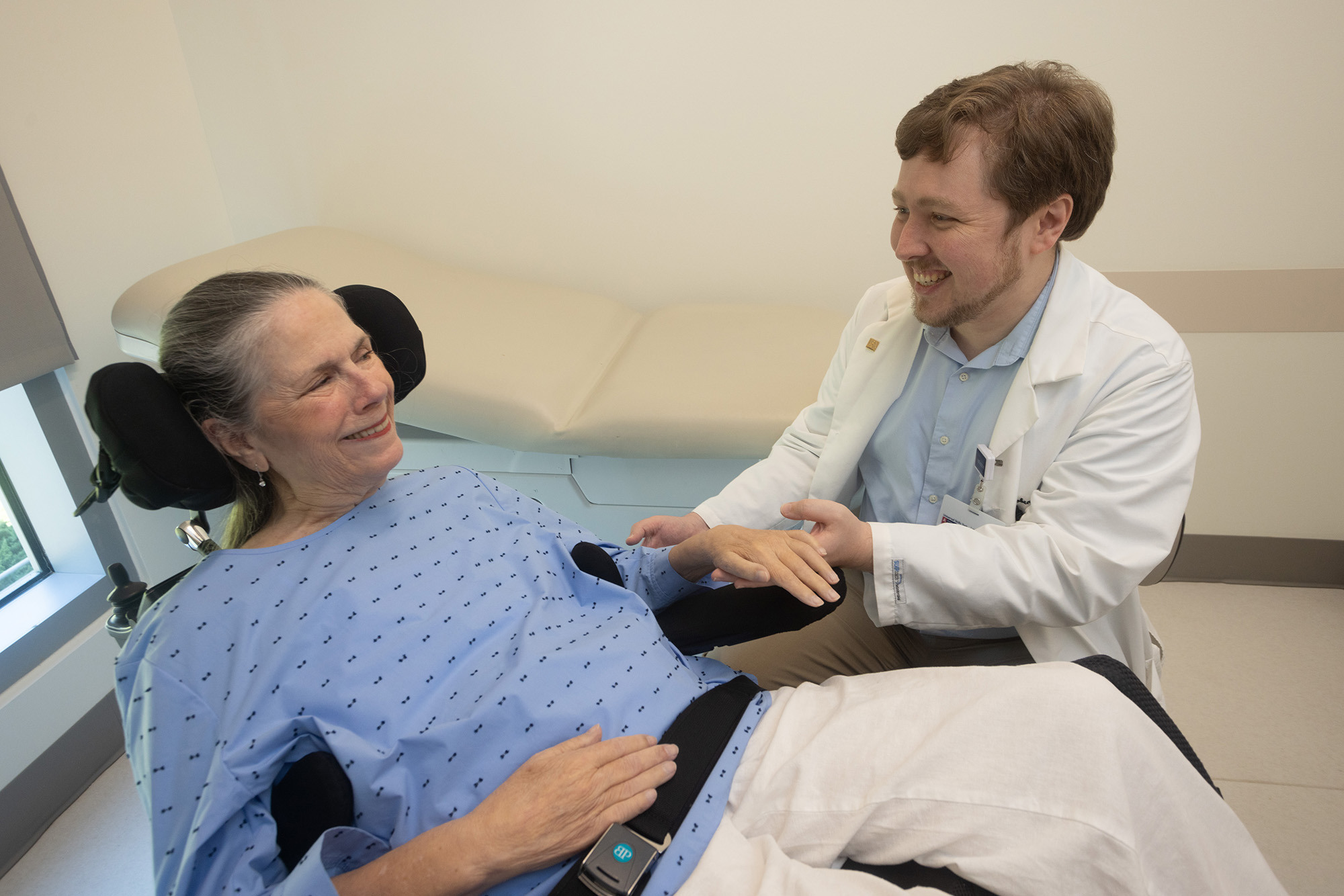
Coping with an ALS diagnosis is different for every individual. There is no right or wrong way to feel when you hear the news of your diagnosis.
Receiving the diagnosis of ALS may trigger a wide range of emotions, including fear, anger, loss, sadness and depression. It is essential to maintain a balance between a sense of hope and realistic expectations.
Empower yourself to learn everything you can about ALS and how it will affect you. It is important to meet with your ALS specialist and multidisciplinary team to discuss any anxiety or concerns you may have regarding information you may have found.
Take time to adjust. The diagnosis can be shocking. Take time to absorb all of the information and allow yourself time to work through your emotional reactions. Denial, anger, sadness and grief are all common and normal reactions.
Be hopeful. Attitude is everything. ALS is not your entire identity, only a part of your life. Think beyond physical changes. Foster deeper connections with your family and friends.
Seek early treatment. Ignoring problems can make a situation more difficult.
Take charge of your care. You are the most important part of the care team. Healthcare professionals and family can help make decisions, but you are in charge.
Engage family and friends. Keep lines of communication open and express your feelings freely. Encourage family and friends to express their feelings as well.
Find support groups. Both you and your family or caregiver may benefit from a support group. Your care team can help you find a group if you are interested.
Plan ahead. Work with your care team to formulate plans for end-of-life care, including the care options you prefer and those you do not.
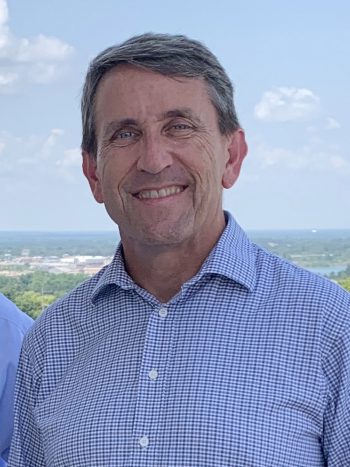
Kelly Butler devoted his career to the State of Alabama until complications associated with ALS led to his retirement.
When he announced in 2021 that he would step down as finance director, Butler said, “Looking ahead, I’m going to do everything humanly possible to help the doctors and researchers find a cure for ALS so that one day, this becomes a disease that people talk about in the past.”
Butler continued to serve the state in an advisory role, but he took up another cause in the fight against ALS. In 2023, he received the Impact Award from the ALS Association in recognition of his work to support the organization’s mission, which is to discover treatments and a cure, to advocate for those with the disease, and to build hope and enhance quality of life.
The USA Health Kelly Butler ALS Center recognizes Butler’s service to the state and the ALS community. Through its multidisciplinary approach, the center will expand access to treatment through specialized care that is convenient, comprehensive and compassionate.
The multidisciplinary team of providers at the Kelly Butler ALS Center includes highly skilled neurologists with expertise in ALS and other neurological conditions.
These neuromuscular physicians at USA Health can evaluate patients for referral to the Kelly Butler ALS Center.
The Kelly Butler ALS Center is located in the Strada Patient Care Center, Suite 2K.
This facility offers free parking and complimentary wifi to patients and their guests.
The study revolves around a specific DNA repair complex formed by the proteins PMS2 and MLH1, also known as Mutl_Alpha, which is crucial for correcting DNA errors.
“Practicing in an academic health system can provide advantages to see patients with different levels of acuity as well as provide solid support for clinical and basic research,” said Ting Wei, M.D., Ph.D.
A board-certified and fellowship-trained pathologist, Bahaaeldin Youssef, M.D., brings a passion for teaching and research to USA Health and the Frederick P. Whiddon College of Medicine.
Join USA Health for the ALS walk in support of the Kelly Butler ALS Center! Participation is free and we encourage you to create a fundraising team to drive more awareness and donations!
Our calendar lists special events and regularly scheduled classes separately. To display a list of upcoming classes, select the "Classes" option above or visit Events, Classes and Support Groups at USA Health.
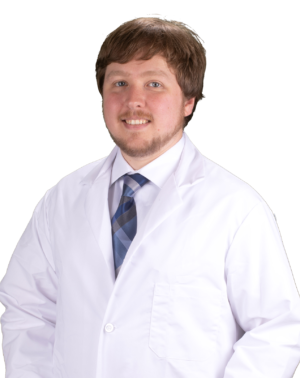 View Profile
View Profile View Profile
View Profile